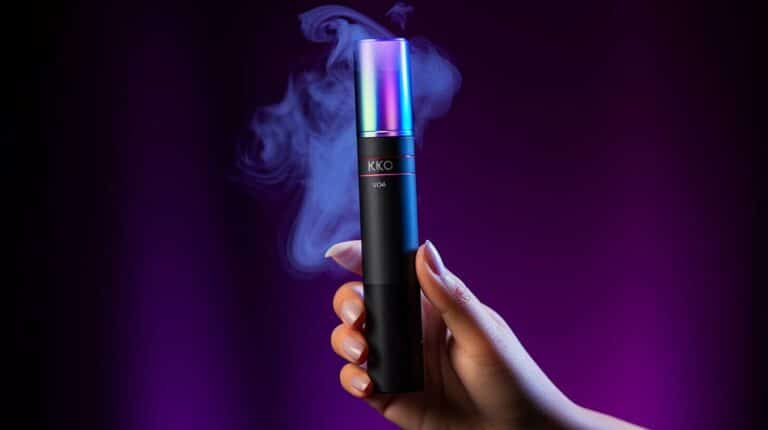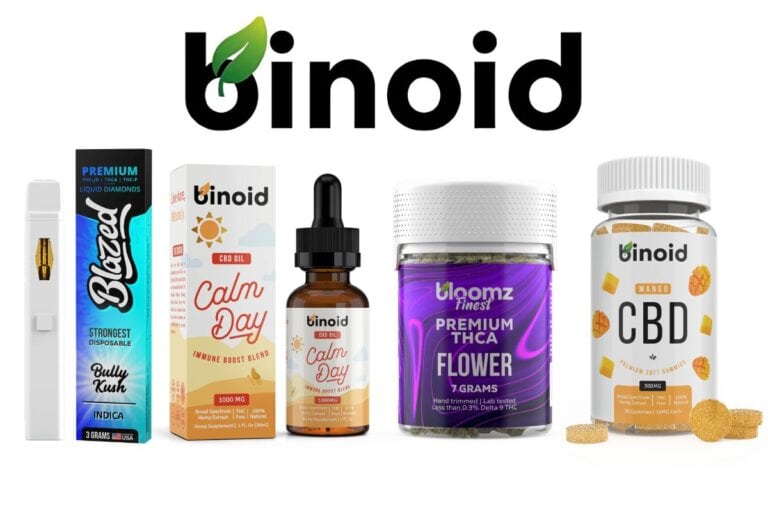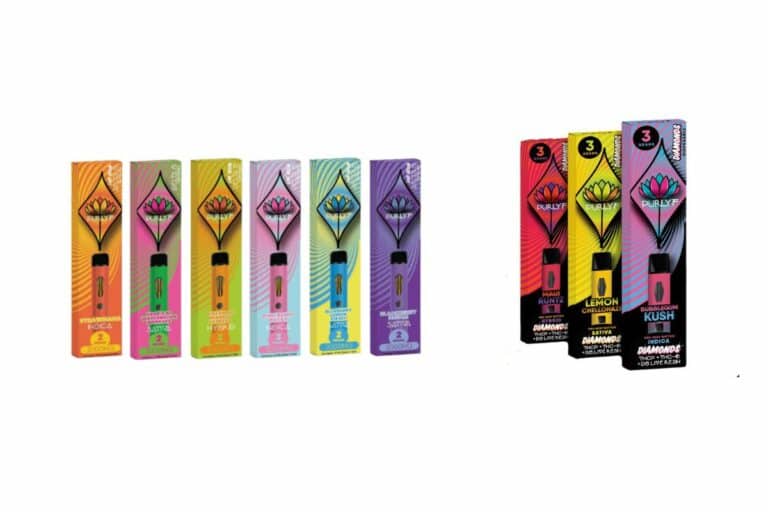Is Delta-8 THC Legal in Rhode Island? State Regulations Explained
Delta 8 THC sure turns heads, making people wonder if it’s a thumbs up to have it hanging around. Take a peek into Rhode Island’s view, and you’ll know right away if delta 8 THC is in the clear or out of luck. Got your interest? Learn all about it here. While delta 8 THC gets a nod in some places because it comes from hemp, Rhode Island isn’t playing nice. Having or snagging delta 8 THC stuff in this state lands you in hot water. Discover why it’s crucial to stay in the loop!
Table of contents
- Legal Status of Delta 8 THC in Rhode Island
- Overview of Cannabis Regulations in Rhode Island
- Delta 8 vs. Delta 9 THC: Comparing Cannabinoids
- Implications of Illegality and Restrictions
- Influence of the 2018 and 2023 Farm Bills
- Delta 8 Consumer Guidance
- Rhode Island’s Cannabis Industry Outlook
- Comparison with Other States
- Legal Obstacles and Advocacy
Understanding this legal landscape is crucial if you reside in or visit Rhode Island and have an interest in delta 8 THC. The state’s legislation aligns with federal guidance concerning the controlled substance status of delta 8 THC. Despite its chemical similarities to the more well-known delta 9 THC – the primary psychoactive component in marijuana – and its occurrence in hemp plants, Rhode Island law does not distinguish between the two compounds in its controlled substances act. As such, it is important to be aware of these regulations to stay on the right side of the law.
Legal Status of Delta 8 THC in Rhode Island
When you’re researching the legality of Delta 8 THC in Rhode Island, it’s critical to understand the distinction between federal and state law. According to federal law, Delta 8 THC is legal under certain circumstances. The 2018 Farm Bill federally declassified hemp and its derivatives containing less than 0.3% Delta-9 THC, which includes Delta 8 THC, as Schedule I controlled substances.
State Law Compliance: However, Rhode Island state law governs the legality of controlled substances within the state. Despite Delta 8 THC being federally legal under specific conditions, Rhode Island has classified it differently.
Current Legislation: Rhode Island has aligned its controlled substances list more closely with federal law, but with notable exceptions. Specifically, the state has made certain cannabinoids illegal, which may affect the legality of Delta 8 THC. For instance, as indicated by recent developments in cannabis law, Delta 8 THC might be implied to be legal as long as it is hemp-derived and does not exceed the federal limit for Delta-9 THC.
Market Availability: While Delta 8 THC products were legally sold in the state until a specific date, subsequent interpretations of the law have led to ambiguity about the current legal status. If a product containing Delta 8 THC meets the regulated THC limits and is derived from hemp, the federal law might suggest it’s permissible. However, you must be cautious and check the latest state regulations since changes can occur.
Here is a simple breakdown:
- Federal Law: Legal under the 2018 Farm Bill if derived from hemp and below 0.3% Delta-9 THC.
- Rhode Island Law: Potential illegality due to state-controlled substances list and recent legal interpretations.
Conclusion: You should examine the most recent Rhode Island state laws or consult with a legal expert to confirm the current legality of Delta 8 THC in Rhode Island, as state laws can override federal permissions concerning controlled substances.
Overview of Cannabis Regulations in Rhode Island
As you navigate the landscape of cannabis laws in Rhode Island, it’s important to understand the intricate regulations governing THC, hemp-derived products, and medical marijuana within the state.
State Law and THC Regulation
In Rhode Island, state law classifies Tetrahydrocannabinol (THC), the psychoactive compound in cannabis, as a Schedule I controlled substance. However, the state has made allowances for certain forms of cannabis. Although the legal status can be complex, Rhode Island has taken steps to distinguish between substances that are permissible for use and those that are not, often based on THC content and the purpose of use.
Federal and Hemp-Derived Product Rules
On the federal level, the 2018 Farm Bill removed hemp, defined as cannabis with less than 0.3% THC, from the Schedule I controlled substance list. This change means that hemp-derived products, like CBD, are legal if they comply with federal standards. Yet, the legality of other cannabinoids, such as delta-8 THC derived from hemp, falls into a legal gray area and may vary based on state interpretation and enforcement of these federal guidelines.
Medical Marijuana and CBD Policies
Medical marijuana policies in Rhode Island have established that individuals with a qualifying condition may obtain a medical marijuana card, granting them legal access to cannabis for therapeutic use. CBD, another non-psychoactive cannabinoid, is also legal in the state and is not subject to the same stringent regulations as THC-containing products for recreational use, provided it adheres to federal and state guidelines concerning its derivation and THC content.
Delta 8 vs. Delta 9 THC: Comparing Cannabinoids
In exploring the cannabinoids Delta 8 and Delta 9 THC, you’ll find that they are closely related yet distinct in their legal status, effects, and how users experience them. Here’s what you need to understand about these compounds:
Chemical Similarities and Differences
Delta 8 THC and Delta 9 THC are both forms of tetrahydrocannabinol found in the cannabis plant. Chemically, they differ by the placement of a double bond on their chain of carbon atoms: Delta 8 has it on the 8th carbon, while Delta 9 has it on the 9th. This slight shift impacts how they interact with your body’s endocannabinoid system. Delta 9 is typically more potent than Delta 8, which may lead to more pronounced effects.
Legality and Accessibility
Legality is a key difference between the two compounds. As of my knowledge cutoff date, Delta 9 THC is federally illegal and classified as a Schedule I drug under United States law, but it is legal for medical and/or recreational use in some states. Conversely, Delta 8 THC often exists in a legal gray area due to the 2018 Farm Bill, which legalized hemp derivatives containing less than 0.3% Delta 9 THC. However, some states, such as Rhode Island, may have specific laws regarding Delta 8, making its status vary state by state.
Effects and Consumer Experience
Users generally report that Delta 8 THC provides a milder high compared to Delta 9 THC. While both cannabinoids can offer a sense of relaxation and potential pain relief, Delta 9 is associated with a more powerful psychoactive experience. The consumer experience can vary widely, as individual tolerance and the cannabinoid profile of the product consumed will influence the effects. It’s important to consider your own response and legal context when choosing between these THC isomers.
Implications of Illegality and Restrictions
Navigating the legal landscape of Delta-8 in Rhode Island can affect you whether you’re a consumer or part of the burgeoning industry. Your understanding of legality, market impact, and professional insights may influence your decisions and awareness of potential risks.
Penalties for Possession and Sales
In Rhode Island, if you are found in possession or selling Delta-8 products, you could face fines and other penalties similar to those for Delta-9-THC, depending on the quantity and your intent. Possession limits for these substances often determine the severity of the punishment. If Delta-8 is treated under the same category as Schedule I substances, severe legal consequences could apply.
- Personal Possession: Penalties may range from minor fines to significant legal charges.
- Sales: Those involved in the unauthorized sale could face stringent prohibitions and increased fines or incarceration.
Consumer Safety and Market Impact
The legal status in your area dictates the level of regulation of Delta-8 products, impacting consumer safety and the overall market. A legally ambiguous or illegal status can lead to a lack of standardization in purity and labeling of products like gummies, extracts, oils, and edibles. As a result, consumers may inadvertently purchase products from unregulated sources, potentially exposing themselves to health risks and legal issues.
- Consumer Risks: Potential exposure to products with unknown purity and consistency.
- Market Effects: Legal restrictions drive the market underground, which can affect product availability and quality.
Legal Professional Insights
Your reliance on advice from legal professionals is crucial in navigating Rhode Island’s Delta-8 legal framework. Legal professional insights can offer clarity on the interpretation of current statutes and regulations specific to Delta-8. They can also prepare you for any shifts in the legal landscape, providing guidance on compliance to avoid the repercussions of illegality.
- Statutes & Regulations: Staying informed about changes in the law with professional advice.
- Preventative Measures: Understanding your legal obligations can prevent accidental breaches of current restrictions.
Influence of the 2018 and 2023 Farm Bills
The 2018 and 2023 Farm Bills have reshaped the legal landscape around hemp and its derivatives, such as Delta-8 THC. As you navigate the complexities of these laws, it’s crucial to understand their impact on federal and state regulation, particularly in Rhode Island.
Regulatory Shifts and Updates
Under the 2018 Farm Bill, hemp was removed from the definition of marijuana in the Controlled Substances Act. This action descheduled hemp and any hemp-derived products with less than 0.3% Delta-9 THC, including Delta-8 THC. However, the 2023 Farm Bill further clarifies regulatory frameworks, reinforcing that hemp-derived cannabinoids must align with existing federal law. To stay compliant, you should be aware that while the 2018 Farm Bill created a pathway for legal hemp production, ongoing updates have the potential to redefine permissible THC levels and production practices in the cannabis market.
State Law Adjustments and Hemp Growth
Following the federal bills, Rhode Island, like many other states, adjusted its state laws to accommodate the growing hemp industry. This includes the adoption of the Hemp Growth Act, aligning state regulations with federal ones to bolster the local market for hemp-derived products. If you’re a grower or consumer in Rhode Island, you should monitor state amendments closely, as they directly influence the legality and regulation of substances like Delta-8 THC.
Interstate Commerce and Delta-8 Distribution
The interplay between the 2018 Farm Bill and subsequent legislation has significant implications for interstate commerce—especially concerning hemp-derived products. In light of the 2018 and 2023 Farm Bills, Delta-8 THC remains a federally legal substance as long as it’s derived from hemp and contains less than 0.3% Delta-9 THC. Consequently, the interstate distribution of Delta-8 is lawful, provided that it does not contradict state laws. Keep in mind that Rhode Island’s state regulation can influence the sale and distribution of these products, including how they’re marketed and sold within the state.
Delta 8 Consumer Guidance
When considering Delta 8 THC products, it’s essential to understand the labeling and legal landscape. Accurate knowledge of product contents and compliance with state laws ensures your safety and legality of possession.
Understanding Product Labels and Contents
Delta 8 THC is one of the many cannabinoids found in the cannabis plant, distinct from the more well-known Delta 9 THC. When purchasing, check the label for the following:
- Purity: Ensure the product states the percentage of Delta 8 THC.
- THC Content: Verify that the Delta 8 THC concentration does not exceed 0.3% on a dry weight basis, in line with federal definitions of hemp.
- Other Cannabinoids: Be aware of other cannabinoids present, as they may affect the overall experience.
Labels may also provide information on the recommended dosage and whether the product contains synthetically modified substances. It’s crucial to confirm that products are tested by third-party labs with results available for review.
Safe Usage and Legal Compliance
Delta 8 THC exists in a complex legal environment. It’s legal on a federal level if derived from hemp, though state laws vary. As of now, you should verify whether Rhode Island laws permit the sale and possession of Delta 8 THC products, as legal status may change. When using Delta 8 THC:
- Possession: Understand state laws regarding the legal age for possession and any quantity limits.
- Consumption: Approach consumption with caution, particularly if unfamiliar with THC products, and avoid driving or operating heavy machinery.
- Safe Usage: Always start with a lower dose to gauge the body’s reaction and avoid the potential for an unexpected high.
Stay informed on the current legal developments regarding cannabis and its derivatives to ensure compliance with evolving regulations.
Rhode Island’s Cannabis Industry Outlook
Your understanding of the Rhode Island cannabis market requires a grasp of the ongoing trends and the legal landscape. As you navigate the industry, it’s important to consider the ever-evolving state statutes and federal laws that shape the market environment.
Current Market Trends and Predictions
The Rhode Island cannabis industry is experiencing robust growth, with consumer demand steadily increasing. You are seeing a diversification of cannabis products, catering to both medical and recreational users. The trend of legalization has positively impacted the state’s market, as Rhode Island’s cannabis laws align with a broad consumer base seeking both THC-dominant and CBD-rich products. Forecasts predict that sales could see a continuous uptick, buoyed by strategic regulatory frameworks that promote market stability and consumer safety.
Emerging Legal Considerations
As the industry unfolds, you are advised to monitor Rhode Island’s evolving regulatory framework. The legal status of cannabis derivatives such as Delta-8 is under scrutiny, and changes in the state law could influence market dynamics. For example, the state’s approach to the legal status of medical marijuana and industry-specific regulations signals a cautious yet progressive stance. It’s important for industry participants to check the current statutes and stay informed about legal amendments, as these directly affect the production, distribution, and sales within the state, and ensure compliance with both Rhode Island and federal law.
Comparison with Other States
When you’re navigating the legality of Delta 8 THC, it’s essential to understand how laws differ from one state to another. This section will focus on the legal status of Delta 8 in various states and explore examples of how certain states approach its regulation.
Delta 8 Legality Across the United States
The legal landscape for Delta 8 THC varies significantly across the country, with each state having the autonomy to regulate it independently of federal law. You’ll discover that while Delta 8 is legal federally under the Farm Bill, provided it’s derived from hemp with less than 0.3% Delta 9 THC, state laws can be more restrictive. Here’s a brief overview:
- Legal: In states like Florida and California, you can legally purchase Delta 8 THC products such as gummies, edibles, and oils.
- Illegal: States like Idaho, Iowa, and Mississippi do not allow the sale or possession of Delta 8 THC under their state statutes.
- Gray Area/Restricted: States such as Alaska, Arizona, and Arkansas have more complex regulations where the legal status may be less clear or more restrictive.
Case Studies of Regulatory Variances
Specific state examples can shed light on the regulatory nuances:
- Kentucky: Despite federal legality, Kentucky considers all THC forms illegal, including Delta 8, under state law.
- Vermont: Vermont has expressly banned the manufacture and sale of Delta 8 THC products due to the state control of psychoactive cannabis derivatives.
- Connecticut: Here, Delta 8 can be sold legally; however, producers and sellers must be licensed by the state, showcasing a regulated approach.
- Utah & New York: These states have specific requirements and prohibitions regarding the sale of Delta 8 THC, reflecting legislative variances even among states restricting Delta 8 THC.
Always check your state’s current laws and statutes to stay informed, as regulations are subject to change.
Legal Obstacles and Advocacy
In Rhode Island, the complexities of cannabinoid legislation pose a notable challenge. You’ll find that the interplay between federal and state laws creates a legal grey area, particularly concerning substances like delta-8 THC.
Groups and Efforts for Cannabinoid Legalization
Legalization Advocacy: Various groups in Rhode Island champion the legalization and regulation of cannabinoids, including delta-8 THC. These organizations work tirelessly, aiming to overcome the significant legal barriers by providing evidence of the substance’s benefits and advocating for sensible policies.
Regulatory Obstacles: Despite these efforts, your encounter with regulatory hurdles is inevitable. The main issue stems from delta-8 THC’s legal status being in flux; it’s a cannabinoid synthesized from CBD, which itself is legal, creating confusion and challenges in advocacy efforts.
Unified Front: As you examine the progress in Rhode Island, entities like local advocacy groups have been critical in voicing their opinions on the need for clear state regulations. They often highlight inconsistencies in the law that affect both consumers and legitimate businesses looking to operate within the legal framework.
Frequently Asked Questions
In this section, you will find specific information regarding the legal status of Delta-8 THC in Rhode Island, including current regulations, recent legislation, and comparisons with nearby states.
What are the current regulations regarding Delta-8 in Rhode Island?
Rhode Island maintains a legal distinction between hemp-derived Delta-8 THC and Delta-9 THC, the latter commonly found in marijuana. Products containing Delta-8 THC derived from legally certified hemp can be legally sold and possessed in the state, reflecting the 2018 Farm Bill’s stipulations at the federal level.
Has there been any recent legislation affecting the legality of Delta-8 in Rhode Island?
As of the latest updates, Rhode Island has not introduced specific legislation that changes the standing permissibility of Delta-8 since the Farm Bill of 2018 legalized hemp and its derivatives. Stakeholders should stay informed, as legislative changes can arise.
Are there distinctions between Delta-8 and Delta-9 THC under Rhode Island law?
Yes, Rhode Island law differentiates between Delta-8 and Delta-9 THC. While Delta-9 THC, typically associated with marijuana, remains tightly regulated, Delta-8 THC is legal when derived from hemp that meets federal standards of containing less than 0.3% Delta-9 THC by dry weight.
Can Delta-8 THC products be legally purchased in Rhode Island?
You are allowed to legally purchase Delta-8 THC products in Rhode Island as long as they are derived from hemp and comply with the federal definition by containing less than 0.3% Delta-9 THC.
How does Rhode Island’s stance on Delta-8 compare to neighboring states like Massachusetts?
Rhode Island’s position on Delta-8 is similar to neighboring Massachusetts, where Delta-8 is also legal if sourced from compliant hemp. This reflects a broader trend in the New England region toward accepting hemp derivatives in accordance with the 2018 Farm Bill.
Is possession of Delta-8 considered legal in Rhode Island?
Possession of Delta-8 THC in Rhode Island, provided it is produced from federally compliant hemp, is legal. Though, it’s important to ensure that the products meet the necessary THC content requirements to avoid legal complications.







